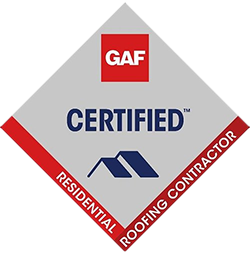
Replacing your roof is one of the biggest investments you’ll make in your home—and one of the most stressful if you go in unprepared. In this guide, we’ll cover the most common questions and concerns homeowners have so you can feel confident and informed every step of the way.
1. What do you wish you had known when you replaced your roof?
Many homeowners report that they wish they had known:
- The importance of choosing a reputable contractor: Not all roofing companies are equal—experience, licensing, insurance, and reviews matter.
- What’s included in a warranty: Understanding the difference between manufacturer warranties and workmanship warranties is key.
- How ventilation impacts your roof's longevity: Improper attic ventilation can shorten the lifespan of your roof and void warranties.
- That insurance doesn’t always cover full costs: Even with approval, deductibles and exclusions can leave you with out-of-pocket expenses.
- The disruption during installation: The process is noisy and intrusive, especially for families working from home or with pets.
You can avoid many of these problems by solving the first one - choosing a reputable contractor. TTLC can walk you through any questions you may have and ensure you have the easiest possible experience replacing your roof.
2. What company is the best for roofing?
There’s no one-size-fits-all “best” company—your ideal roofer will depend on your location, project scope, and budget. However, qualities to look for in a top-tier roofing company include:
- Proper licensing and insurance
- Strong reputation and positive reviews (Google, BBB, etc.)
- Certified by roofing material manufacturers (GAF Master Elite, Owens Corning Preferred Contractor)
- Transparent pricing and detailed written estimates
- Experience with insurance claims (if relevant)
3. How much does it cost to replace a roof?
Roof replacement costs vary widely depending on multiple factors:
Factors that Impact on Price
- Size of the roof (square footage) — More area = higher cost
- Roof pitch/slope — Steeper roofs are more labor-intensive
- Materials used — Asphalt shingles are cheaper than metal, tile
- Roof complexity — Multiple valleys, skylights, chimneys add cost
- Region/labor rates — Pricing varies by geographic location
- Tear-off vs. overlay — Full tear-offs cost more
Average cost (U.S.):
- $5,000 – $12,000 for asphalt shingles (typical residential roof)
- $15,000+ for premium materials like metal or tile
You can get a better idea of the cost for your roof by using a roofing cost calculator to factor in your roof's details and desired materials. For an exact and final estimate, be sure to schedule an appointment for a roofing contractor to come out and inspect your roof in person.
4. Should I repair or replace my roof?
Repair vs. Replacing Your Roof
Repair
- Minor damage (missing shingles, small leaks)
- Roof is under 10–15 years old
- Damage is isolated
- You're not planning to stay long-term
Replace
- Widespread damage or major storm impact
- Roof is 15–20+ years old
- Repair costs are approaching replacement value
- You're planning to stay or sell soon and want to increase home value
A qualified roofer can inspect your roof and advise on the best option based on the condition, age, and extent of damage.
5. Does homeowners insurance cover roof replacement?
It can—but only under specific circumstances. Most policies will cover roof replacement if the damage is due to a sudden, accidental event such as:
- Hail
- Windstorms
- Falling debris (e.g., a tree)
Not covered:
- Wear and tear from age
- Poor maintenance
- Manufacturer defects
Coverage also depends on your policy type and deductible. It's important to review your policy or talk to your insurance agent.
6. How to get insurance to pay for roof replacement?
Here are the general steps:
- Schedule a professional inspection – A roofing contractor experienced with insurance claims can help identify damage worth reporting.
- File a claim with your insurance company – Provide photos and documentation if possible.
- Insurance adjuster visits – They assess the damage and determine coverage.
- Compare the Statement of Loss to actual repair needs – A knowledgeable roofing contractor will identify omissions or errors.
- Negotiate, if needed – Your roofer can work with the insurer to ensure fair compensation (this is called supplementation).
- Pay your deductible – This is your responsibility; any contractor who says otherwise is committing fraud.
Choosing the Best Roofing Company for Your Project
A successful roof replacement isn’t just about picking shingles—it’s about making informed choices that protect your home for decades. By learning from other homeowners’ experiences, asking the right questions, and working with reputable, certified contractors, you can avoid common headaches and unexpected costs.
Ready to take the next step? Reach out today to schedule a consultation and get the clarity you deserve about your roofing project.
Subscribe to TTLC, Inc's Blog


Comments